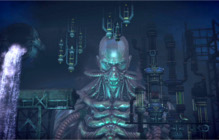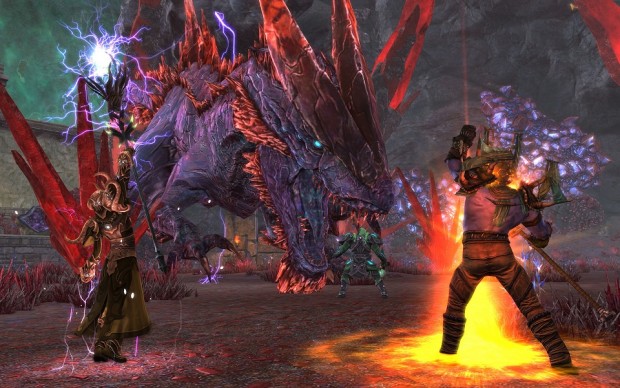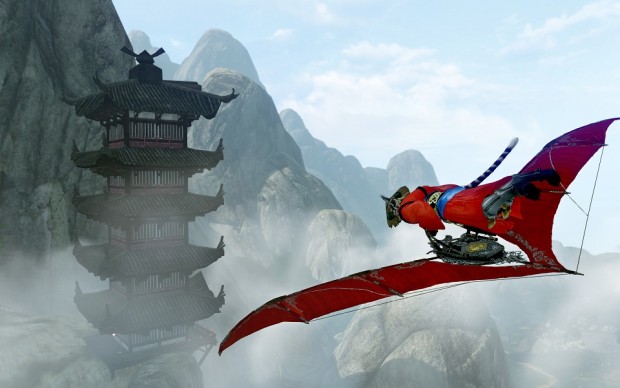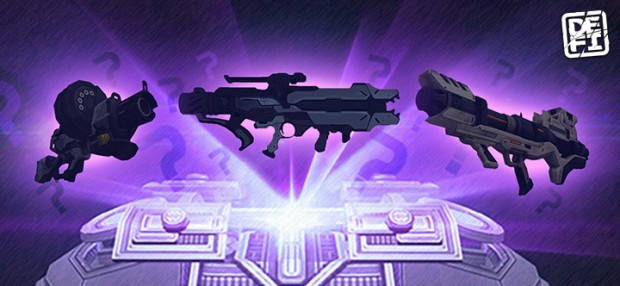Trion's Hartsman Talks Rift, Plus Some F2P And MMO Truths
Trion Worlds CEO Scott Hartsman recently opened up to VentureBeat in a lengthy interview on the occasion of Rift's five-year anniversary -- which actually occurred in March but, eh, close enough. Hartsman had a number of interesting things to say about the game and in doing so, laid bare a few truths about the genre that should be more both obvious and misunderstood.
First, regarding Rift, Hartsman claims that around 1/3 of the players who log in now are "people who’ve been around since near the start." That's a remarkably high number, when we've heard that barely 6% of players stick with a free-to-play game a year after its launch. Of course, Rift wasn't F2P at its launch, and its earliest reported sales were in the one million range, so maybe retaining 300,000 or so of those people -- along with a few who have joined along the way -- isn't too far-fetched.
Two types of players
In talking about some of the game's missteps, Hartsman does bring up a point that we've always known but, in my mind, has always been explained poorly: that people will resist paying for a "free" game even if they'd be OK with paying for a single purchase up front:
"What we’ve discovered is that if you sell it for $40 or $50, people not only accept it, they’ll even celebrate it. If you give it away for free, and charge for optional systems or content related to that expansion to make up the difference, you not only don’t get credit for having given it away for free, you run the risk of creating disappointment."
Much of the time, this resistance in F2P is attributed to some form of the simplistic "all F2P games nickel-and-dime you to death," but for some reason, the way Hartsman put it made me think it might be something different -- that it's not about how different F2P/B2P games are but about the different people that play one or both.
Imagine that you have a $50 game and that, say, one million people buy it. They're obviously OK with the purchase and have less of a problem with additional $50 expansions or DLCs. Not zero problem, mind you, but less of a problem. On the outside, you also have one million (we'll say) people who were interested in the game but didn't buy it for one reason or another.
That first group of people are your customers and you need to pay attention to them. The second group aren't your customers and can, for the most part, be ignored. Also, since they don't play the game, and don't have any real investment in it, they won't be as likely to spout off about it on the Internet.
Now, suppose your game is free-to-play. That first group of a million players, which was fine with spending money on the game, will naturally check it out. So will the second group, which is more sensitive to pricing. Now, when you introduce something that costs additional money, the first group will be mostly OK with it, while the second group won't -- even if what you propose costs less than a typical subscription and thus is better than the original sub-based model.
The difference between this case and the first case is that you now have an additional million people who do count as your customers and who are more likely to spread negativity on forums, social media, and so on, than they would if they weren't playing your game in the first place.
To put it simply, going F2P doesn't mean a game will have a lousy cash shop -- well, sometimes, but not always. It means that it turns non-customers into customers, with all that entails. These are people you now have to pay attention to, people you could safely ignore in the first scenario, when your game required an up-front purchase. It might not fit in all cases -- some "paid" players may still resist microtransactions, while some "free" players will be OK with them -- and Trion's received plenty of criticism even from its paying customers, but it might be a significant factor in explaining why so many F2P games, even the ones with decent payment models, receive so much flak: that the bulk of the discontented are made up of people who wouldn't be there at all if the game wasn't at least nominally free.
All that being said, Hartsman does refer to "misalignments of expectations" being what he regrets the most about the free-to-play transition. I'll put that one fully on Trion's shoulders, along with every other developer of a F2P game who shouts "FREE!" from the treetops as loudly as they can to anyone who will listen and then are astonished when people are hesitant to pay up.
Majority rules
Finally, Hartsman makes one last point about MMOs that's probably true but hits a little closer to home than I'd like, based on my beliefs and preferences.
Over time in level-based games, it becomes harder and harder to keep people together. Worlds get bigger. Level ranges expand. Yet people, through their deeds if not universally through their words, love levels. The challenge for any modern design team is how to keep it all working together in that world of inherent contradiction.
I've advocated for some time for flatter progression in MMOs, and even the abolition of levels entirely in new games. Hartsman nails the problem on the head when he says it's a challenge to keep people together -- and he doesn't even really address PvP imbalances. At its most basic, I can't play my level 10 character with your level 50, not without some convoluted system (level scaling, gear scaling, etc.) that only serves to make trivial all the growth that characters achieve during the leveling process -- a process that, as MMOs have evolved, has become less important than ever, with players solo-rushing to level cap and only thinking of endgame anyway. From a purely pragmatic standpoint, it's just not necessary anymore and causes more problems than it solves.
But, as Hartsman says, players love levels. They love seeing their numbers get bigger. It's been engrained in our minds that we're supposed to get stronger as we level, and to hell with people who can't keep up. Grouping? That's for endgame, not leveling. What do you think this is, a multiplayer game?
On a broader note, Hartsman notes that people express their love for leveling "through their deeds if not universally through their words," which is a kind of subtle reference to the battle between the vocal minority and the silent majority. In other words, all the people who yell and scream in comment sections about how unfair an MMO's practices are are vastly outnumbered by the hordes of people who happily play along without a care in the world. A recent editorial on Polygon elaborated on this phenomenon, and it's an uncomfortable truth -- and believe me, it is a truth, because if it weren't, lockboxes wouldn't exist -- for those of us who devote significant chunks of our lives to these kinds of games.
Sometimes it's enough to make me wonder if anything we say on our various places on the Internet ever truly matters. I try not to let that thought depress me too much.
Related Articles
About the Author

Jason Winter is a veteran gaming journalist, he brings a wide range of experience to MMOBomb, including two years with Beckett Media where he served as the editor of the leading gaming magazine Massive Online Gamer. He has also written professionally for several gaming websites.
More Stories by Jason WinterRead Next

En Masse Entertainment will be unleashing the next update for TERA on May 17th.
You May Enjoy

Feature
The Future of MMOs Is Indie
Gaming's biggest and most ambitious genre needs that small studio spirit.

(It's like the support or tank class, while developers are the DPS)

This year’s grand prize is the Federation Intel Holoship.

BetaDwarf announced the new investment today.



Second, if f2p game has decent monetization scheme I spend on them more than (for example) full expanded Diablo 3 cost - *monthly*. Happened with last 3 games I've played.
It's just some game producers still don't have a clue how to monetize their games properly because they 1) they have development background from past decade b) don't play (a lot of) games themselves to borrow good working ideas and 3) their background comes from programming rather than sales. And for modern games it takes both good development and *good sales design* to be successful money makers - rather than usual "let's place the whole thing behind $50 entry ticket and go to sleep".